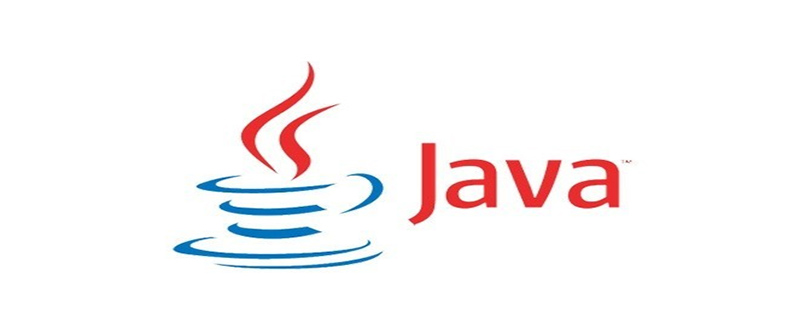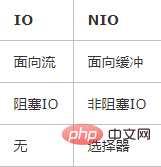
The main differences between IO and NIO in Java are as shown in the figure:

1. Stream-oriented and buffer-oriented
IO is stream-oriented, and NIO is buffer-oriented.
Java IO is stream-oriented meaning that one or more bytes are read from the stream at a time until all bytes are read, and they are not cached anywhere.
Java NIO's buffer-oriented approach is slightly different. The data is read into a buffer that it processes later, moving back and forth in the buffer as needed.
2. Blocking and non-blocking IO
The various streams of Java IO are blocking. When a thread calls read() or write(), the thread is blocked until some data is read, or the data is completely written.
The non-blocking mode of Java NIO allows a thread to send a request to read data from a certain channel, but it can only get the currently available data. If no data is currently available, nothing will be obtained. Instead of keeping the thread blocked, the thread can continue to do other things until the data becomes readable.
3. Selector
Java NIO's selector allows a single thread to monitor multiple input channels. You can register multiple channels using one selector. A separate thread is then used to "select" channels that already have input that can be processed, or select channels that are ready to be written to. This selection mechanism makes it easy for a single thread to manage multiple channels.
Recommended tutorial: java tutorial
The above is the detailed content of The difference between java nio and io. For more information, please follow other related articles on the PHP Chinese website!
 java
java
 The difference between static web pages and dynamic web pages
The difference between static web pages and dynamic web pages
 java regular expression syntax
java regular expression syntax
 What is the difference between 4g and 5g mobile phones?
What is the difference between 4g and 5g mobile phones?
 The difference between k8s and docker
The difference between k8s and docker
 Is it difficult to learn Java by yourself?
Is it difficult to learn Java by yourself?
 java configure jdk environment variables
java configure jdk environment variables
 The difference between JD.com's self-operated flagship store and its official flagship store
The difference between JD.com's self-operated flagship store and its official flagship store